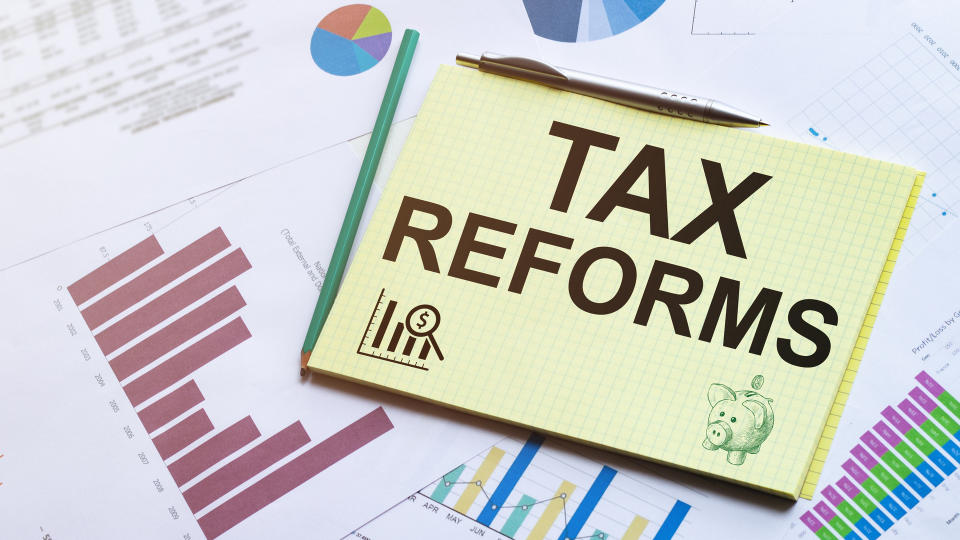How Will the Inflation Reduction Act’s Tax Reform Impact You?

To help pay for the new provisions in the Inflation Reduction Act, the U.S. government will institute new tax structures.
See: Inflation Reduction Act’s Climate Change Initiatives Subsidize Solar Panels, Electric Vehicles
Find:7 Surprisingly Easy Ways To Reach Your Retirement Goals
The changes will only apply to individuals and corporations making more than $400,000 annually and will not affect lower and middle class workers or small businesses. The new bill would also impose an excise tax equal to 1% of fair market value for stock buybacks by companies and executives.
It includes instituting a minimum corporate tax of 15% for any organization that nets $1 billion-plus in income, or revenue of $300 billion. As well, $80 billion over the course of 10 years will be provided for the IRS to better enforce tax payments for those who have found loopholes in the system.
Part of the Act is also offering additional tax credits for measures that align with the overarching themes of the legislation such as, mentioned above, breaks for families and individuals that invest in electric cars and solar energy.
Learn: Inflation Reduction Act Offers Home Tax Credits, Rebates to Upgrade Electric and Solar Infrastructure
EV Tax Credit: How Electric Car Owners Could Reap Benefits of Inflation Reduction Act
One thing, for now, that isn’t in the legislation is the extension of the Child Tax Credit as some like Sen. Joe Manchin (D-W.Va.) who introduced the bill claim the cost is too great though others like Sen. Bernie Sanders (D-Vt.) have been pushing for it.
More From GOBankingRates
Social Security: New Bill Could Give Seniors an Extra $2,400 a Year
States Whose Economies Are Failing vs. States Whose Economies Are Thriving
Looking To Diversify in a Bear Market? Consider These Alternative Investments
This article originally appeared on GOBankingRates.com: How Will the Inflation Reduction Act’s Tax Reform Impact You?
